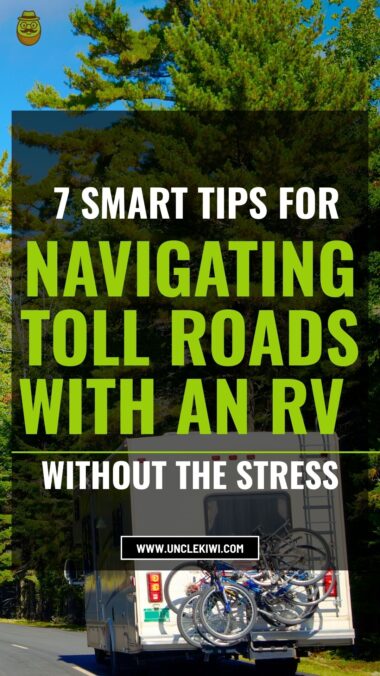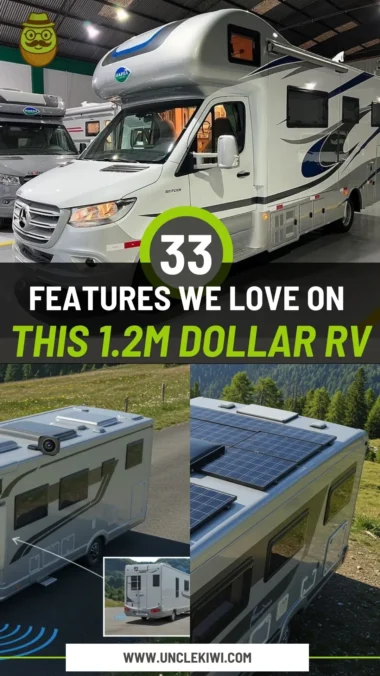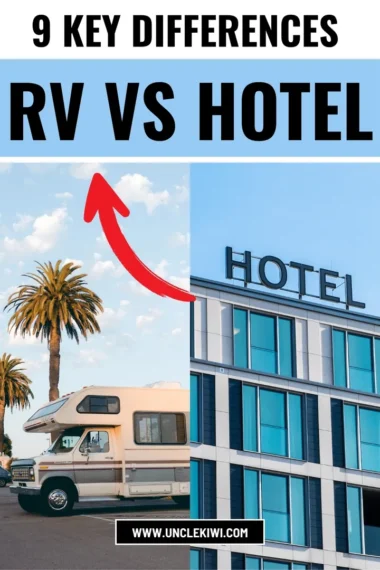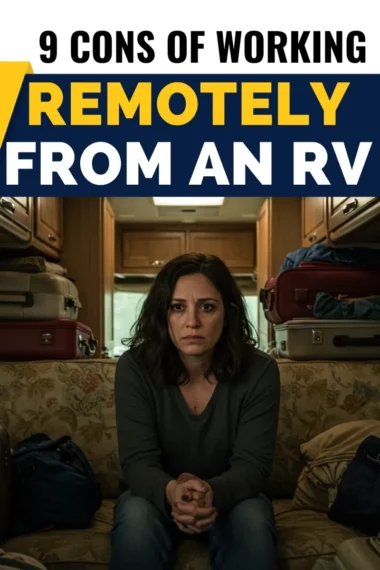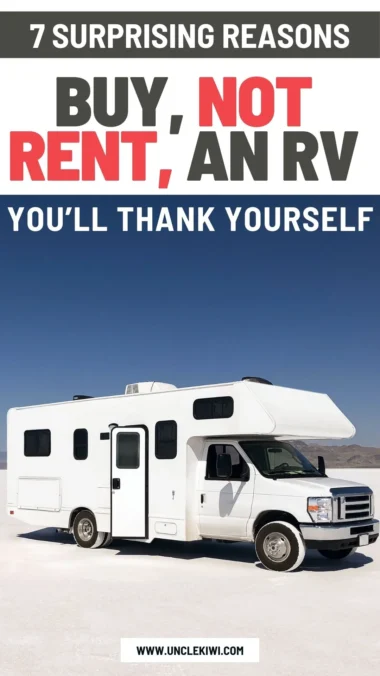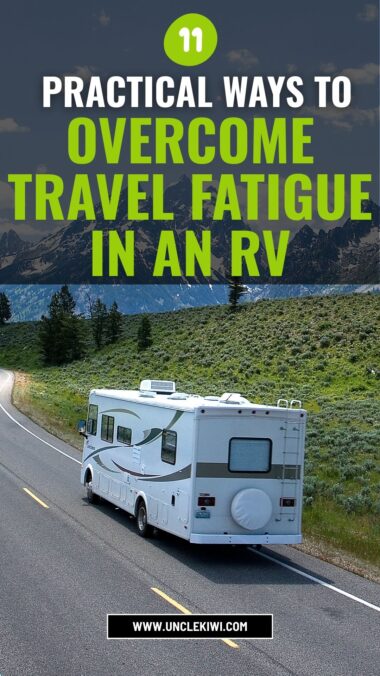11 Proven Ways to Beat RV Travel Fatigue on the Road
Traveling in an RV offers unmatched freedom—but it also comes with unique fatigue challenges. Whether you’re a weekend warrior or a full-time road tripper, long hours behind the wheel, disrupted routines, and limited mobility can wear you out. In fact, a 2023 AAA study revealed that over 60% of RV travelers experience fatigue symptoms like irritability, poor sleep, and loss of focus during trips.
To help you stay sharp and joyful on the road, we’ve put together 11 practical and science-backed tips to overcome RV travel fatigue. Let’s jump into strategies that will keep your energy levels high so you can enjoy every mile.
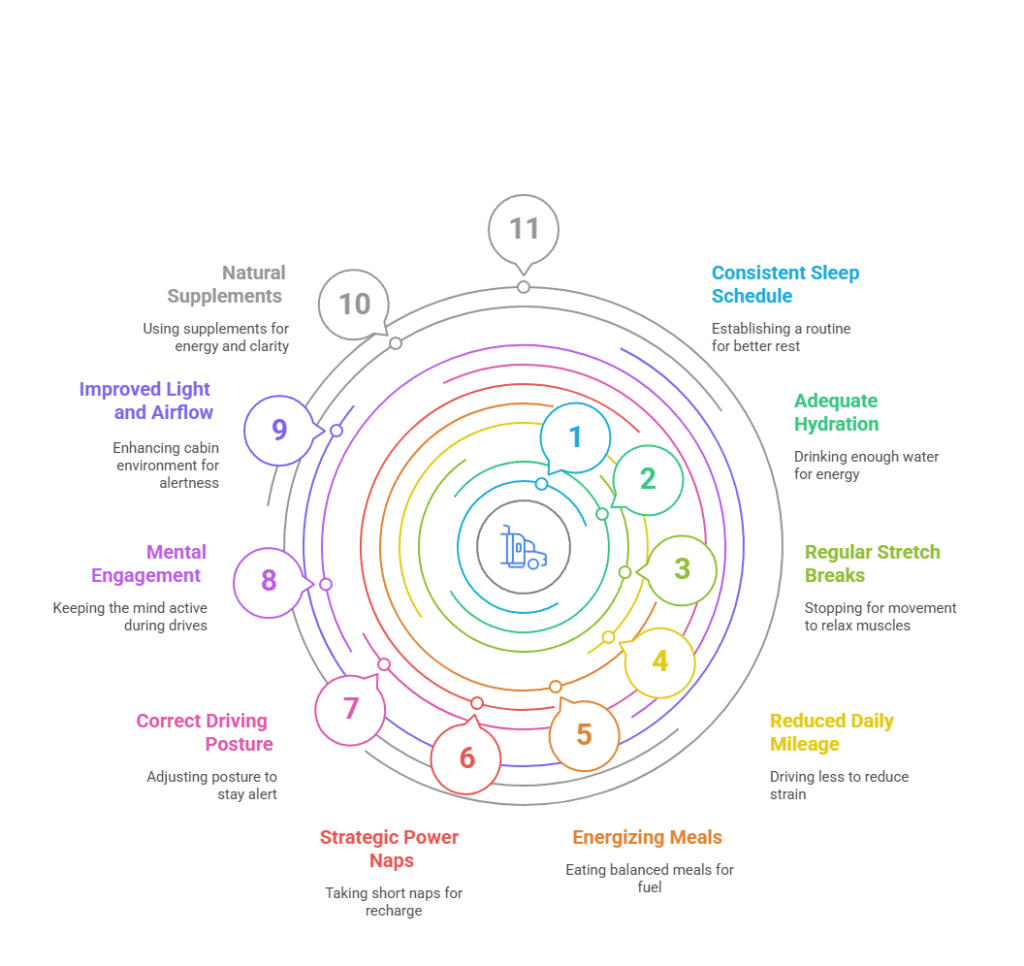
Why Does Travel Fatigue Happen in an RV?
Travel fatigue isn’t just about physical tiredness. It combines disrupted circadian rhythms, dehydration, stress, and poor posture during long hauls.
Even though RVs offer comfort, they lack consistent sleep environments and may not provide adequate air circulation or seating ergonomics. Understanding the cause helps you counter it better.
What Are the 11 Best Ways to Overcome RV Travel Fatigue?
Maintaining a consistent sleep schedule
Establishing a routine helps regulate your internal body clock. Consistency leads to deeper, more restorative rest and better mood throughout your journey.
- Stick to fixed sleep/wake times
- Use blackout curtains or eye masks
- Avoid screen time before bed

Drinking enough water
Hydration is often overlooked but crucial for energy and concentration. Even mild dehydration can trigger fatigue and headaches.
- Keep a visible water bottle in your driving area
- Drink 8–10 cups daily (more in hot weather)
- Limit coffee and soda intake

Taking regular stretch breaks
Stopping every 2 hours for light movement keeps your blood flowing and joints relaxed. It’s a small habit with big energy returns.
- Stretch your arms, shoulders, and back
- Do a brisk 5-minute walk outside
- Add resistance band exercises for variety
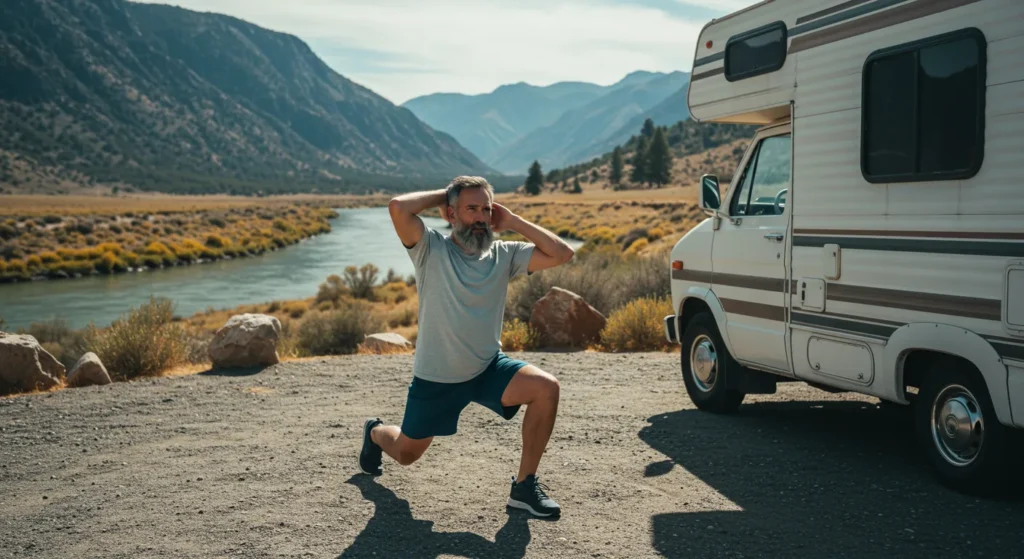
Reducing daily mileage
Driving less per day reduces both physical strain and mental exhaustion. The sweet spot is between 300–400 miles daily.
- Plan routes with frequent scenic breaks
- Avoid driving past dusk if possible
- Arrive at campsites before dark to unwind

Choosing energizing meals
Balanced meals fuel your brain and body for the road. Junk food might be convenient, but it can cause energy crashes.
- Cook meals ahead with fresh ingredients
- Include whole grains, fruits, and proteins
- Limit sugary snacks and processed foods

Using short power naps wisely
Power naps are incredibly effective for recharging during daytime drives. Keep them brief and strategic.
- Ideal nap length: 15–20 minutes
- Avoid naps after 4 PM
- Use window shades and a neck pillow

Correcting your driving posture
Sitting with poor alignment can cause backaches, neck pain, and fatigue. Small posture changes help you stay alert longer.
- Keep knees slightly lower than hips
- Use lumbar supports or cushions
- Adjust mirrors so you don’t hunch

Keeping your mind engaged
Long stretches of driving can cause mental fatigue. Keeping your brain stimulated helps with alertness and enjoyment.
- Listen to educational podcasts or audiobooks
- Try language learning apps
- Play mental games or trivia with passengers
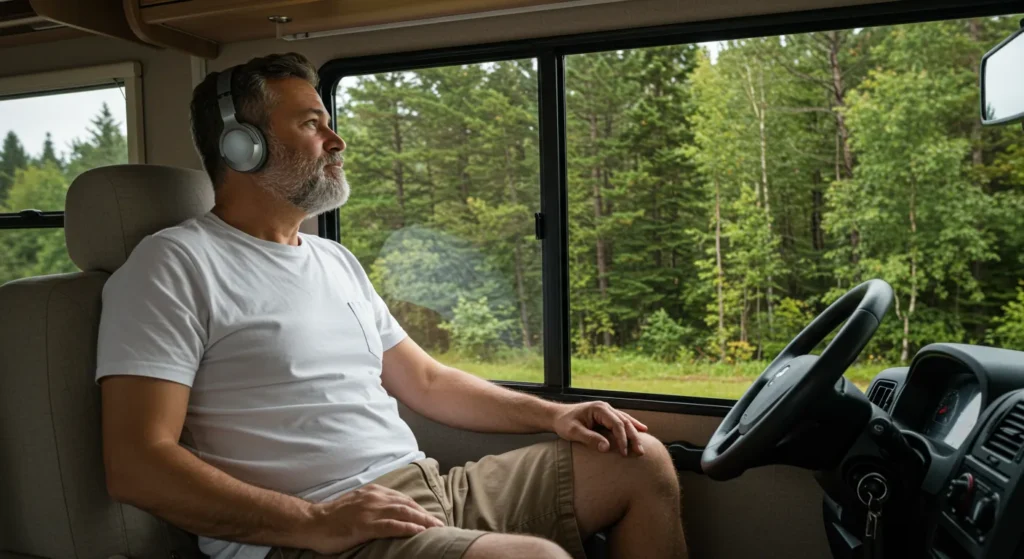
Improving light and airflow in the RV
Light and air quality affect your energy levels. A stuffy cabin leads to sluggishness while good airflow keeps you awake.
- Open windows for ventilation
- Let in natural light when possible
- Consider a portable fan or air purifier
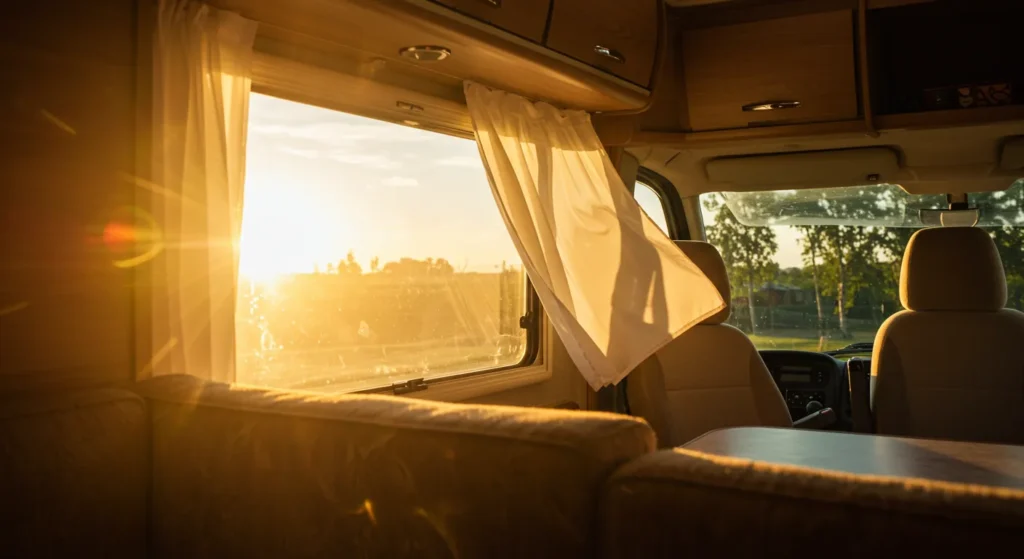
Trying natural supplements safely
Some vitamins and minerals can support energy metabolism and mental clarity when taken appropriately.
- Magnesium reduces cramps and improves sleep
- B-complex vitamins boost cellular energy
- Always consult a doctor before use

Tracking your health with a journal
Noticing patterns in your energy levels helps you plan better. Journals bring awareness and aid in healthier routines.
- Track sleep, water intake, meals, and mood
- Reflect weekly to adjust strategies
- Use a physical notebook or digital app
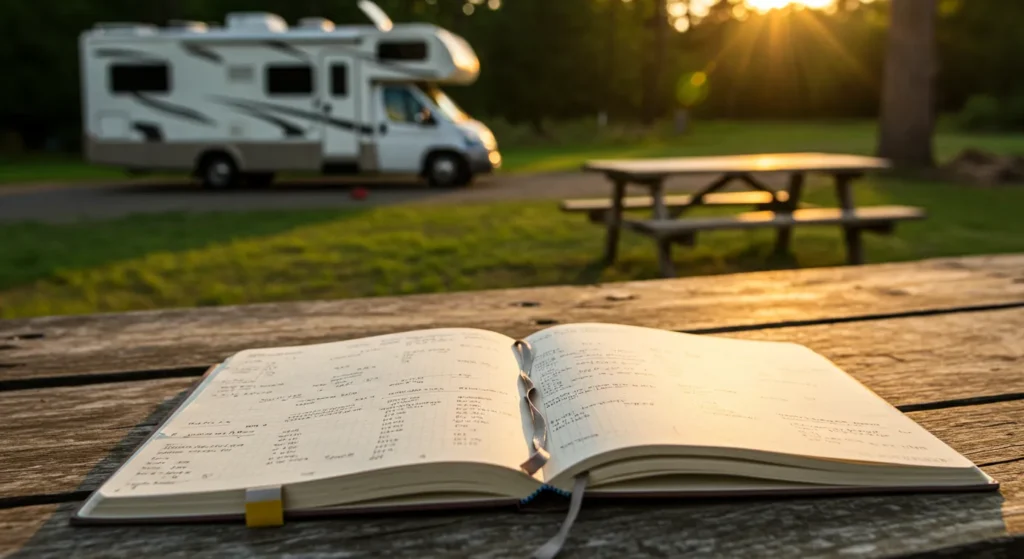
Hidden and Long-Term Costs
While RVs can save money on lodging and meals, they come with ongoing maintenance. Think tire replacements, AC repairs, and roof resealing. These costs average $500–$1,200 annually for frequent users. Hotels rarely require upfront or recurring maintenance investments, but lack the reusability of RV gear.
Depreciation and Vehicle Investment
An RV’s depreciation can significantly affect total cost. A $30,000 RV depreciating 10% yearly equals $3,000 lost annually—about $100/night if used only 30 nights. If you need to buy a truck to tow the RV, that cost must also be factored into the equation.
Pros and Cons of RVs vs. Hotels
Both RVs and hotels cater to different needs. Here is a breakdown of their respective strengths and limitations to help guide your decision:
Benefits of RV Travel
- Budget-Friendly for Families: Ideal for longer trips, RVs reduce nightly costs and allow home-cooked meals, significantly lowering total expenses.
- Flexible Travel Plans: Drive and stay wherever you like, from remote forests to beachfront spots, without the need to follow strict check-in rules.
- Home Comforts on the Road: Enjoy the familiarity of your own bed, bathroom, and kitchen—great for kids, pets, and those with dietary needs.
- Social and Scenic Settings: Meet like-minded travelers and enjoy direct access to nature, away from crowded city centers.
Drawbacks of RV Travel
- High Initial Costs: Purchasing or renting an RV, plus insurance and storage, can be expensive upfront.
- Fuel and Maintenance: Lower gas mileage and ongoing upkeep can increase overall costs if not well-managed.
- Size Constraints: RVs require maneuvering space and specific parking conditions, especially in urban areas.
- Ongoing Maintenance: Regular inspections, repairs, and component replacements are necessary.
Benefits of Hotel Stays
- All-Inclusive Amenities: Access pools, fitness centers, room service, and housekeeping without extra setup.
- Effortless Check-In: Ideal for short trips, spontaneous bookings, or travelers looking for instant comfort.
- Central Locations: Stay close to attractions, public transport, and dining hubs.
- Reliable Comfort: Clean, air-conditioned rooms with plush beds and private bathrooms offer consistent rest.
Drawbacks of Hotel Stays
- Higher Daily Cost: Especially during peak seasons or in tourist-heavy areas.
- Meal Expenses: Limited cooking options lead to frequent and costly dining out.
- Less Personal Space: Smaller rooms may not suit large groups or families.
- Environmental Load: Hotels tend to use more water, electricity, and disposables than self-contained travel.
Final Thoughts
Choosing between an RV and a hotel depends on your lifestyle, budget, and travel goals. RVs offer flexibility, nature access, and long-term savings, ideal for adventurous and family-oriented travelers. Hotels provide consistent comfort, structured services, and convenience for short or business-focused trips. Understanding these core differences ensures you select the right accommodation for your next journey.
Summary Cost Table
| Criteria | RV Travel | Hotel Stay |
|---|---|---|
| Avg. Lodging Cost/Night | $45–$80 | $130–$200 |
| Fuel Cost (Per Mile) | $0.17 (towing) | $0.11 (car only) |
| Meal Cost/Day | $10–$20 (home-cooked) | $30–$60 (eating out) |
| Maintenance | $500–$1,200/year | $0 |
| Privacy & Comfort | High (self-controlled) | Medium (shared environment) |
| Flexibility | Full route and schedule control | Limited to booking policies |
| Amenities | Campground dependent | On-site services |
| Storage/Depreciation | Vehicle required + depreciation | None |
FAQs
What are the first signs of RV travel fatigue?
The earliest signs include constant yawning, difficulty concentrating, headaches, and mood swings.
Is it dangerous to drive when tired in an RV?
Yes. Fatigued driving impairs reaction time and judgment, increasing accident risk. It’s as dangerous as drunk driving.
What’s the ideal driving duration per day for RV trips?
Most RVers recommend driving no more than 6 hours a day with breaks every 2 hours to maintain energy and focus.
Can kids experience RV travel fatigue too?
Absolutely. Children may become restless, irritable, or lethargic. Make sure they get enough sleep and active playtime.
Do certain foods help reduce fatigue?
Yes. Foods high in fiber, iron, and protein like spinach, oatmeal, and eggs help sustain energy throughout the day.
Should I avoid caffeine while driving?
Moderation is key. A morning cup is fine, but avoid caffeine late in the day to avoid sleep disruptions.
Are RV mattresses causing bad sleep?
Most stock RV mattresses are thin and unsupportive. Upgrading to a memory foam topper can improve sleep quality significantly.
Can air quality inside the RV affect fatigue?
Yes. Poor ventilation can lead to stuffiness and low oxygen levels, making you feel more tired and less alert.
Are apps helpful in managing RV fatigue?
Yes. Trip-planning apps like RV Life and Campendium help you schedule breaks and find safe, scenic rest stops.
What’s the best time of day to drive to avoid fatigue?
Morning hours (8 AM to noon) are best for focus. Avoid driving during the afternoon slump from 2–4 PM.


